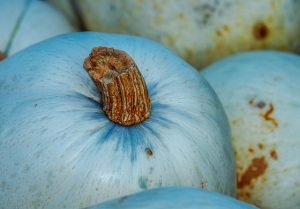Compost creation is a beneficial practice for garden enthusiasts, promoting soil health and plant growth by recycling yard waste like leaves and grass clippings. Different compost types (brown & green) cater to specific needs. Effective yard waste removal techniques, such as chipping/shredding, speed up decomposition and reduce storage. Balanced composting with nitrogen-rich food scraps and carbon-rich dry leaves produces nutrient-rich compost. Repurposing kitchen scraps and garden residue into compost is a cost-effective, eco-friendly way to enhance soil health, reduce chemical fertilizers, and minimize yard waste management impact.
“Unleash your garden’s full potential with the art of composting! This comprehensive guide is tailored for dedicated gardeners seeking to enhance their green oasis. Discover the power of understanding compost—its benefits, types, and how it transforms yard waste into a garden goldmine. Explore effective removal techniques for optimal results. Learn creative ways to recycle kitchen scraps and garden residue, ensuring your compost is richer than ever. Embrace sustainable practices with these practical tips and watch your garden flourish.”
- Understanding Compost: The Benefits and Types for Gardeners
- Effective Yard Waste Removal Techniques to Boost Your Composting Process
- Creative Ways to Recycle Kitchen Scraps and Garden Residue for Richer Compost
Understanding Compost: The Benefits and Types for Gardeners

Compost creation is a beneficial practice for garden enthusiasts as it offers numerous advantages for their green spaces. Understanding compost involves grasping its role in enhancing soil structure, promoting nutrient retention, and stimulating healthy plant growth. By recycling yard waste, such as leaves, grass clippings, and vegetable scraps, gardeners can produce rich, organic material that replaces the need for synthetic fertilizers.
There are various types of compost, each with unique characteristics and applications. For instance, brown compost, made from materials like dry leaves and straw, provides structural support and improves drainage. Green compost, derived from moist items like grass clippings and food scraps, is high in nitrogen and promotes lush foliage growth. Combining these components creates a balanced compost that benefits the entire garden ecosystem, making it an eco-friendly solution for effective Yard Waste Removal and Recycling.
Effective Yard Waste Removal Techniques to Boost Your Composting Process

Effective Yard Waste Removal is a key component in boosting your composting process. Instead of relying on traditional methods that can be time-consuming, consider implementing eco-friendly techniques. For instance, chipping or shredding organic materials like leaves, grass clippings, and small branches can accelerate decomposition. These smaller pieces not only reduce the space required for storage but also increase the surface area, speeding up the composting process.
Recycling yard waste is another powerful strategy. Instead of sending materials to landfills, where they produce greenhouse gases, integrate them into your compost pile or bin. Materials like food scraps, eggshells, and coffee grounds are rich in nitrogen, while dry leaves and straw provide carbon. Balancing these components ensures a healthy composting environment that fosters beneficial microorganisms, ultimately producing nutrient-rich compost for your garden.
Creative Ways to Recycle Kitchen Scraps and Garden Residue for Richer Compost

Many garden enthusiasts are looking for creative ways to reduce yard waste removal costs while enhancing their compost game. Instead of sending kitchen scraps and garden residue to the landfill, consider repurposing them into valuable resources for your garden. One innovative approach is to utilize food scraps like fruit peels, vegetable trimmings, and coffee grounds in your compost pile. These organic materials not only enrich the soil with essential nutrients but also accelerate the composting process.
For garden residue, think outside the box! Old grass clippings, dried leaves, and even small twigs can be transformed into gold for your garden. Simply layer these materials in your compost bin, ensuring a balance of green (nitrogen-rich) and brown (carbon-rich) components. This diverse mix creates a nutrient-dense compost that will foster healthy plant growth and reduce the need for chemical fertilizers. Embracing creative recycling methods not only benefits your garden but also contributes to sustainable yard waste removal practices.
Compost creation is not only an eco-friendly practice but also a valuable asset for garden enthusiasts. By understanding the benefits and types of compost, implementing effective yard waste removal techniques, and creatively recycling kitchen scraps and garden residue, you can significantly enhance the health of your plants and contribute to a greener environment. Integrating these practices into your gardening routine is a step towards sustainable living and a thriving garden.






